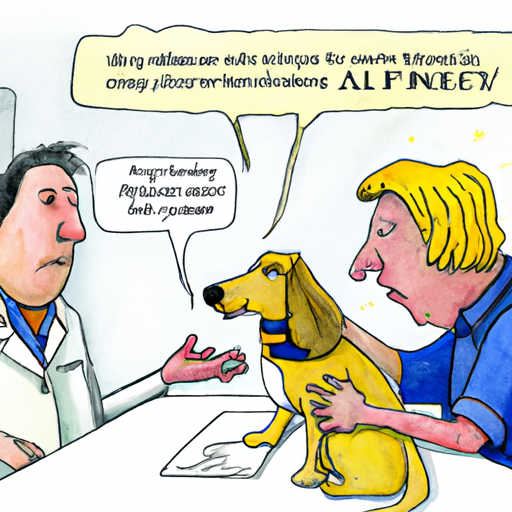As a loving caregiver to your pet, undoubtedly you want the best for them. When your beloved companion starts to show signs of allergies, it can be concerning. This guide aims to help you navigate through the process of understanding and managing your dog’s allergies effectively.
Understanding Your Dog’s Allergies
Allergies in dogs can manifest in several ways and are usually a result of the immune system’s response to an apparent threat. Symptoms can include:
- Itchy, red, moist, or scabbed skin
- Increased scratching
- Itchy, runny eyes
- Itchy back or base of tail
- Itchy ears and ear infections
- Sneezing
- Vomiting
- Diarrhea
- Snoring caused by an inflamed throat
- Paw chewing
- Constant licking
If you notice these symptoms in your dog, it may be time to consult a vet.
Identifying Allergens
Identifying the allergens causing your dog’s discomfort is a crucial part of the process. They could be allergic to a variety of things, such as:
- Food: Ingredients like corn, soy, wheat, and certain types of proteins can trigger allergies.
- Environment: Pollen, dust mites, mold spores, and other environmental factors can cause allergic reactions.
- Fleas: A single flea bite can trigger intense allergic reactions in some dogs.
| Common Allergens | Symptoms |
|---|---|
| Food | Vomiting, diarrhea, itchy skin |
| Environment | Itchy skin, runny eyes, sneezing |
| Fleas | Itchy skin, inflamed skin, constant licking |
Treating Your Dog’s Allergies
Treating your dog’s allergies often involves a combination of tactics, such as:
- Changing their diet: If your vet suspects a food allergy, they may suggest a food elimination diet to identify the problematic ingredient.
- Medication: Antihistamines, steroids, or allergy vaccines may be used to manage symptoms.
- Preventing flea infestations: Regular use of flea prevention treatments can help avoid allergic reactions.
- Limiting exposure to allergens: If possible, try to reduce your dog’s exposure to known allergens.
Ongoing Management of Allergies
Even with treatment, your dog’s allergies may require ongoing management. This could include:
- Regular vet check-ups: These can help monitor your dog’s condition and adjust treatment as necessary.
- Maintaining a clean environment: Regular cleaning can reduce allergens in your dog’s environment.
- Regular grooming: This can help remove allergens from your dog’s skin and coat.
Frequently Asked Questions
1. Can dogs develop allergies at any age?
Yes, dogs can develop allergies at any age, although they are more commonly noticed between one and three years of age.
2. Are certain breeds more prone to allergies?
Some breeds, such as Retrievers, Terriers, and Brachycephalic breeds (like Bulldogs and Pugs), are more prone to allergies, but any breed can develop allergies.
3. Can my dog’s allergies be cured?
There is no cure for allergies in dogs, but symptoms can be managed with the right treatment and ongoing care.
Remember, as a caregiver, your awareness and understanding of your dog’s condition play a significant role in their comfort and happiness. By being proactive, you can help your dog live a comfortable, happy life despite their allergies.



